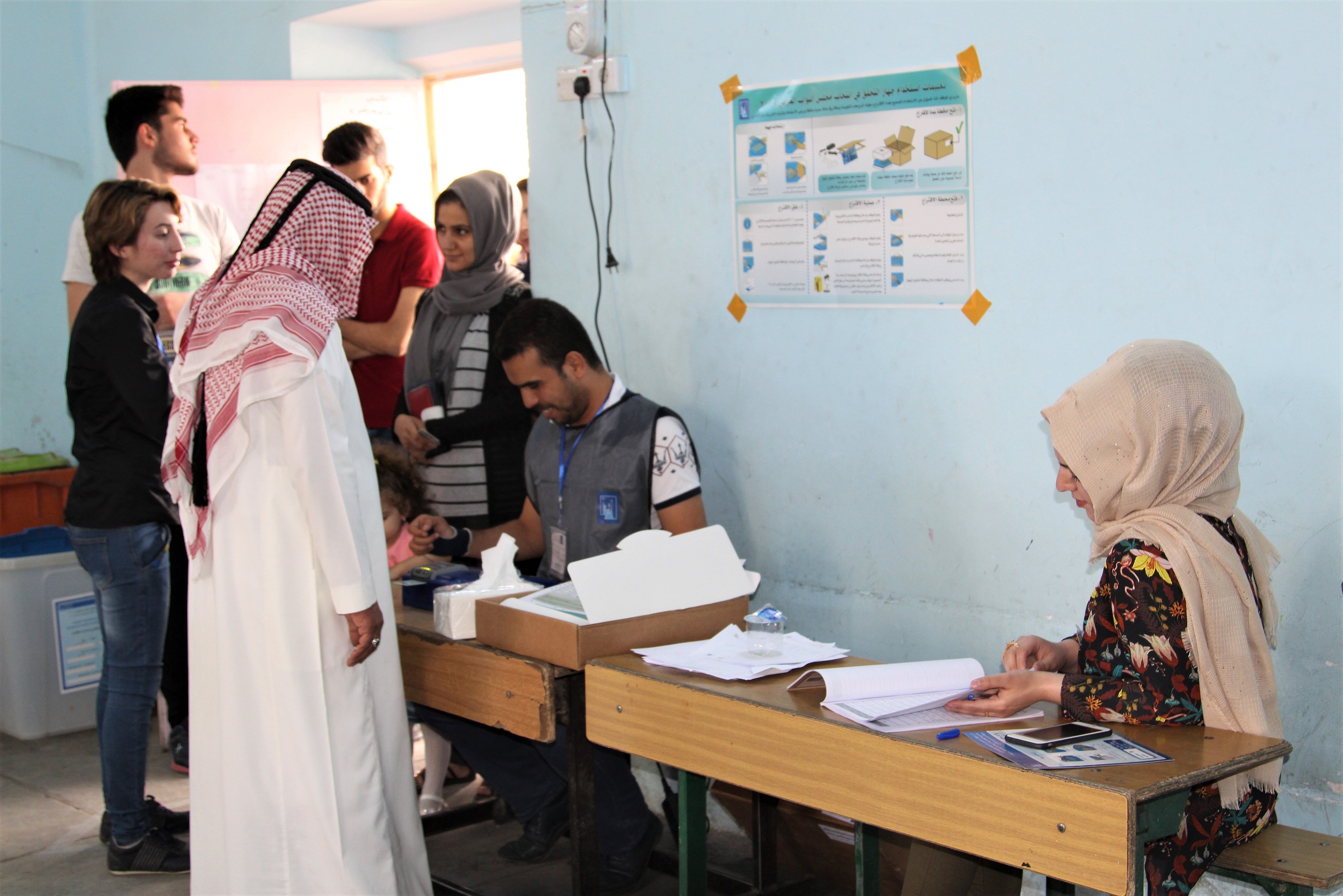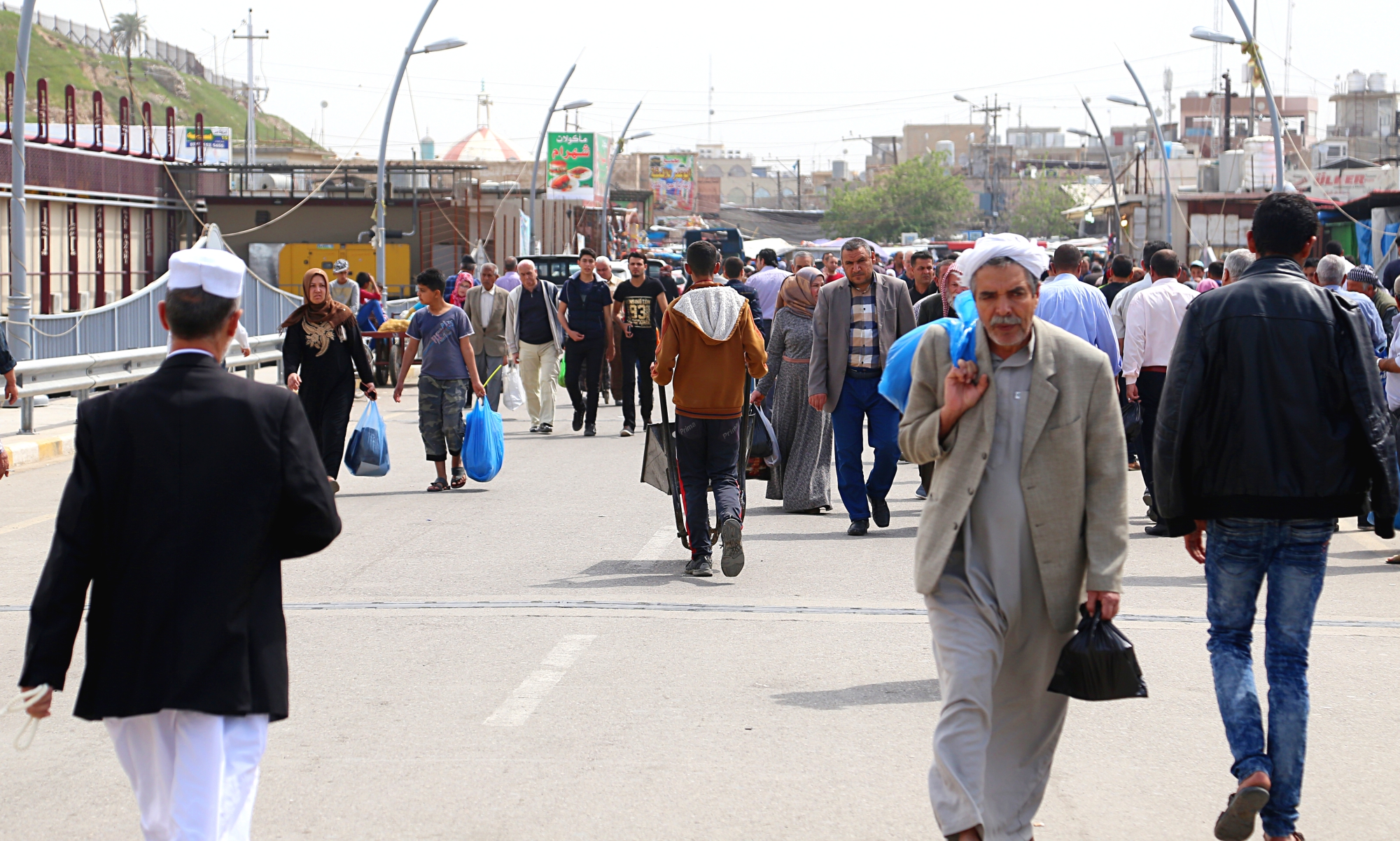The Arab component is running for the parliamentary race with 60 candidates for the three constituencies of Kirkuk which will disseminate their votes and reduce their chances of ensuring higher seats compared to 2018 parliamentary elections.
The Arab community in Kirkuk is eager for more seats as they are not satisfied with the three seats that they won out of 12 seats for Kirkuk in Baghdad’s house of representatives yet the new electoral system might not be in their favor as the political parties failed to form a unified list.
Numerous candidates
The Arab community has 60 candidates in Kirkuk while Kurds and Turkmens all together have 70 candidates, as all the 130, 56 of them independent, race for the 12 seats of Kirkuk distributed over three constituencies.
“High number of candidates dissipate votes of Arab component in the province,” said Nadhim al-Shimmari, vice president of United Arab Front in Kirkuk.
The independent candidates agree with the political parties that more candidates consequently mean less votes.
“Nominating big number by the Arab component is the weak part of the circle because voters will be at loss and their votes will be scattered,” said Fatin al-Khazraji, an independent candidate.
Nominating big number by the Arab component is the weak part of the circle
On October 10th, over one million Kirkukis will vote in 315 ballot stations for 33 female candidates and 87 male candidates.
The northern oil-rich city of Kirkuk, located 238 kilometers north of Baghdad, is an ethnically mixed province for 1.6 million Kurds, Sunni and Shiite Arabs, and Turkmen. It has long been at the center of disputed territories between Baghdad and Erbil.

Kirkuk, May 2018- Kirkukis voting in a ballot station. KirkukNow
Arabs scattered over the constituencies
As the Arab political parties have registered a big number of candidates, they are also running in all the three constituencies with a number of candidates for each constituency though the chances are not high.
“Probably, the Arabs won’t get their rights per their population in these elections due to the multi electoral system while Kurds are based mainly in the first electoral district and Turkmens in the second,” Shimmari believes.
Probably, the Arabs won’t get their rights per their population in these elections due to the multi electoral system
The Kurds and Turkmens have registered few candidates in the mix constituencies and focused on their bases.
Several Arab candidates were registered for the mainly Kurd inhabited first electoral district, which includes east and north of Kirkuk, for which five seats have been allocated by the Independent High Electoral Commission IHEC,
The same is true for the second electoral district which is a mixed part of Kirkuk, for Turkmens, Kurds and Arabs. The district for which four seats have been allocated covers Daquq district and several neighborhoods of Kirkuk.
Arabs have registered 21 candidates in this constituency while the Kurdistan Democratic Party KDP, one of the leading Kurdish parties, has registered only one candidate.
“Registering many Arab candidates will scatter the votes in this constituency. They should have nominated few candidates in this district to get higher votes,” said Mahmoud al-Oubaidi, member of political bureau of Arab Alliance.
The third and smallest district of Kirkuk has three seats, out of which one seat is for women candidate pew quota of the new electoral system. The district covers mainly Arab inhabited district of Hawija and the sub-districts of Abbasi, Zab, Rashad and Taza.
Out of 13 parliamentary seats, the patriotic Union of Kurdistan, PUK, one of the leading Kurdish parties, earned six seats of Kirkuk province in 2018 elections, three seats for each Arab and Turkmens and one quota seat for the Christian community.
The new electoral law ratified last November, a key demand of demonstrators in 2019, changed each of the country’s 18 provinces into total 83 electoral districts in order to prevent parties from running on unified lists, which has in the past helped them easily take all the seats in a specific province. Instead, the seats would go to whoever gets the most votes in the electoral districts.
The 329-member house of representatives was elected in May 2018. The vote is held every four years, but 2019 protesters have been demanding early elections.

A popular bazaar of Kirkuk adjacent to the citadel. KirkukNow
Poor organization
The Arab component in Kirkuk and all over Iraq are voting for several alliances and political parties which failed to form a unified bloc to represent them in order to unite their efforts and earn more seats.
“Kurd and Turkmen components are led by political parties while the Arab component is not well organized since the Arab leaders are more tribal,” Shimmari thinks.
“It’s the tribe that proposes candidates to represent it so it will be someone who has no political and partisan experience and professionally incompetent,” said al-Oubadi.
“Arabs are not organized politically and miss a political leadership which will be reflected in the elections,” he added.
Arab voters realize the situation and blame the political parties for discord.
“After 2003 up today, the Arab community in Kirkuk had no unified reference or a political party that represents all the community all over the province,” said Ahlam Hamdan, 50.
Hamdan wishes that elections will nominate members of the parliament MPs that can address the problems of people and sort it out.
Out of 40 million population, 25 million eligible voters run to the ballots on October 10th to elect only 329 members into Iraqi parliament out of 3,234 nominees.




